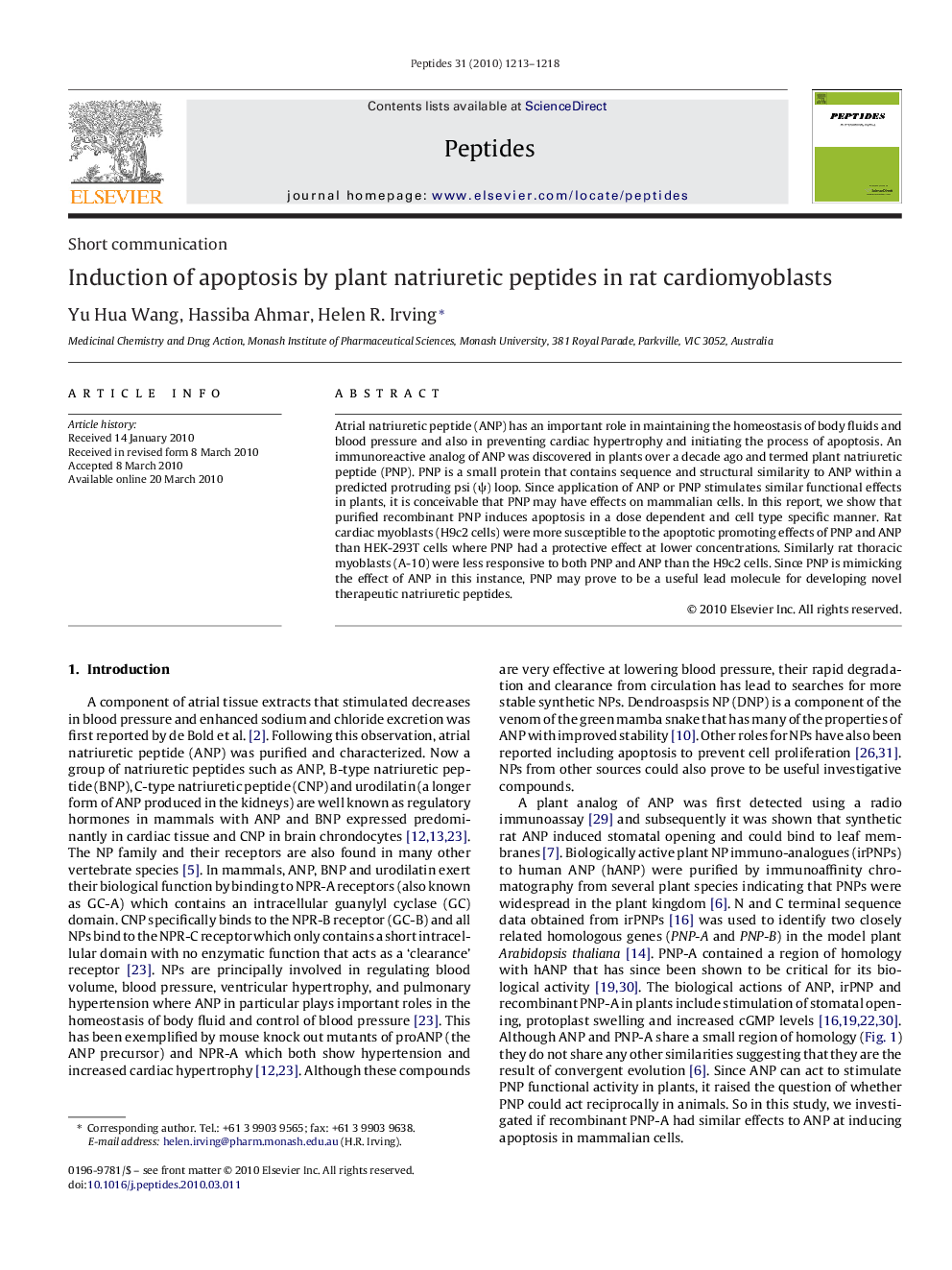| Article ID | Journal | Published Year | Pages | File Type |
|---|---|---|---|---|
| 2007139 | Peptides | 2010 | 6 Pages |
Atrial natriuretic peptide (ANP) has an important role in maintaining the homeostasis of body fluids and blood pressure and also in preventing cardiac hypertrophy and initiating the process of apoptosis. An immunoreactive analog of ANP was discovered in plants over a decade ago and termed plant natriuretic peptide (PNP). PNP is a small protein that contains sequence and structural similarity to ANP within a predicted protruding psi (ψ) loop. Since application of ANP or PNP stimulates similar functional effects in plants, it is conceivable that PNP may have effects on mammalian cells. In this report, we show that purified recombinant PNP induces apoptosis in a dose dependent and cell type specific manner. Rat cardiac myoblasts (H9c2 cells) were more susceptible to the apoptotic promoting effects of PNP and ANP than HEK-293T cells where PNP had a protective effect at lower concentrations. Similarly rat thoracic myoblasts (A-10) were less responsive to both PNP and ANP than the H9c2 cells. Since PNP is mimicking the effect of ANP in this instance, PNP may prove to be a useful lead molecule for developing novel therapeutic natriuretic peptides.
